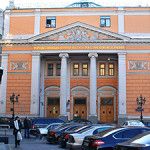Participants of the Russian Arbitration Day 2013 Look at Quality of International Arbitration
On 20 June 2013, for the first time Moscow hosted the international conference Russian Arbitration Day, aimed at the development of international commercial arbitration in the post-Soviet region.
The International Commercial Arbitration Court (ICAC) and Maritime Arbitration Commission (MAC) at the Chamber of Commerce and Industry of the Russian Federation organised the conference with support of law firms Berwin Leighton Paisner LLP, Muranov Chernyakov & Partners and Monastyrsky Zyuba Stepanov & Partners. Alexander Muranov and Roman Khodykin moderated the conference.
The speakers and participants included retired Lord Justice of Appeal Sir Bernard Rix, Chairman of the ICAC and MAC Alexey Kostin, Director of the School of International Arbitration of Queen Mary University Professor Loukas Mistelis and other leading world experts of arbitration. The full list of speakers is available on the conference website.![]()
![]()
![]()
Some of the conference reports addressed interesting yet controversial issues. Professor Loukas Mistelis argued that judges should also act as arbitrators. He also analysed the wider issue of whether arbitrators perform a judicial function or not. It is well known that Russian law does not allow judges to work as arbitrators while this is permissible, for instance, in Sweden and England.
Vladimir Khvalei, vice president of the ICC International Court of Arbitration, pointed out a threat of abuse of arbitration by unscrupulous persons in Russia. However, he doubted the effectiveness of such measures to resist the abuses as obligatory registration of the arbitration providers or limiting the range of legal entities which may establish arbitral tribunals. Mr Khvalei argued that the existing Russian legislative rules are sufficient to oppose abuses of arbitration. According to him, the crucial issues are the specialisation and education of judges hearing cases on the enforcement and challenging of arbitral awards.
Evgeniya Rubinina, lawyer at Freshfields Bruckhaus Deringer LLP (London), reported on evidentiary privileges and the impossibility of using correspondence between the representative and the client as evidence. In Russia, such correspondence is protected only if the party representative has the status of advocate. At the same time, the majority of Russian arbitration lawyers have no such status, which means that the scope of evidentiary privileges depends largely on applicable national rules. In her discourse, the speaker opined on how justified such practice is and also the possible ways of solving the problem.
Following the conference Infotropik Media Publishing House unveiled a collection of articles New Horizons of International Arbitration. Volume 1. It includes both articles of the speakers and those who did not present their reports due to time constraints of the conference.
The participants also discussed the high necessity to ensure the quality of arbitration in Russia and intended reform of Russian law governing international and domestic arbitration. Professor Alexey Kostin said “perhaps we are about to witness some big changes in the Russian legislation on international commercial arbitration, but are they really necessary and to what extent? To what extent should Russia use the experience of other countries and to what extent should we take into account our own traditions? Today’s conference is an opportunity to hear a variety of opinions of both foreign and domestic theorists and practitioners on the issue.”
The organisers hope that the Russian Arbitration Day will become an annual event. This year the conference coincided with the 20th anniversary of the adoption of Russian Law No. 5338-1 “On International Commercial Arbitration”.












